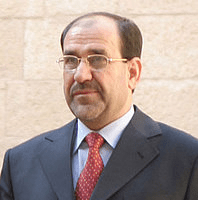It wasn't very long ago when American interest in the Middle East focused with piercing intensity on the minutest of developments in Iraq. Over time, however, the gradual drawdown of U.S. forces, the uprisings in the Middle East and public exhaustion with the draining American misadventure in Mesopotamia conspired to take Baghdad out of the headlines. That is about to change.
The coming months will bring Iraq back to the foreground. A number of crucial events and opposing forces are now converging, and they will determine whether Iraq, the country Americans spent so much blood and treasure to turn into an Arab beacon of Western-friendly stability and democracy, moves into the arms of Tehran, becomes a moderately reliable ally of Washington or slides back into civil war.
Just as the vast majority of American forces prepare to leave the country, the turmoil in the Middle East has made Iraq an even more attractive prize for Tehran. Iran's one trusted friend in the region, Syrian President Bashar al-Assad, is fighting a relentless popular rebellion. It is now quite conceivable that Assad will lose power, eliminating a vital strategic alliance for the Islamic Republic.

